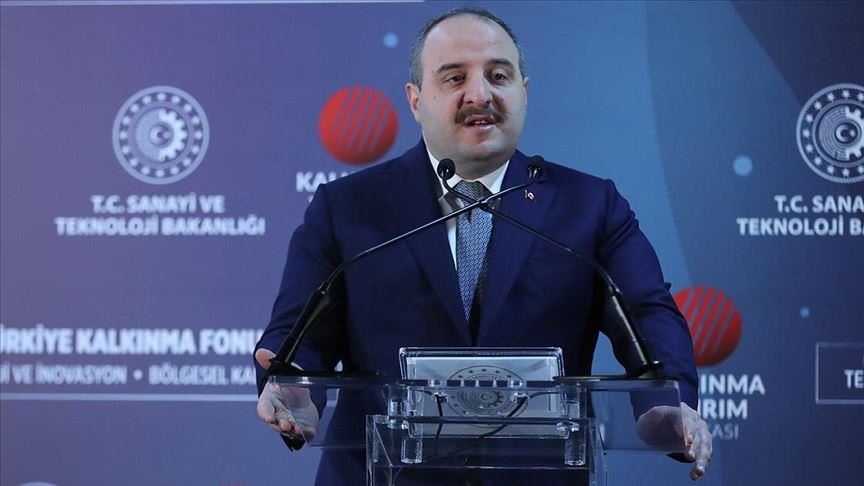
[ad_1]
Issued on:
Tunisian President Kais Saied declared Tuesday that the nation was transferring “from despair to hope” after a referendum nearly sure to approve a brand new structure that concentrates practically all powers in his workplace.
However the president’s rivals accused the Saied-controlled electoral board of “fraud” and stated his referendum – which was marked by an official turnout of little greater than 1 / 4 of the 9.3 million voters – had “failed”.
Monday’s vote got here a 12 months to the day after the president sacked the federal government and suspended parliament in a dramatic blow to the one lasting democracy to have emerged from the 2011 Arab Spring uprisings.
For some Tunisians, Saied’s strikes sparked fears of a return to autocracy. However they have been welcomed by others, fed up with excessive inflation, unemployment, political corruption and a system they felt had introduced few enhancements.
There had been little doubt the “Sure” marketing campaign to approve the brand new structure would win, and an exit ballot prompt that votes solid have been overwhelmingly in favour.
Most of Saied’s rivals referred to as for a boycott, and whereas turnout was low, it was larger than the one figures many had anticipated: no less than 27.5 %, in line with ISIE, the electoral board.
“Tunisia has entered a brand new section,” Saied advised celebrating supporters after polling closed. “What the Tunisian individuals did … is a lesson to the world, and a lesson to historical past on a scale that the teachings of historical past are measured on,” he stated.
The Nationwide Salvation Entrance opposition alliance accused the electoral board of falsifying turnout figures. NSF head Ahmed Nejib Chebbi stated the figures have been “inflated and do not match with what observers noticed on the bottom”.
The electoral board “is not sincere and neutral, and its figures are fraudulent”, he stated.
‘Opaque and unlawful’, opponents say
Saied, a 64-year-old regulation professor, dissolved parliament and seized management of the judiciary and the electoral fee on July 25 final 12 months.
His opponents say the strikes aimed to put in an autocracy over a decade after the autumn of former dictator Zine al-Abidine Ben Ali, whereas his supporters say they have been crucial after years of corruption and political turmoil.
“After 10 years of disappointment and complete failure within the administration of state and the financial system, the Tunisian individuals needed to do away with the previous and take a brand new step, regardless of the outcomes are,” stated Noureddine al-Rezgui, a bailiff.
A ballot of “Sure” voters by state tv prompt “reforming the nation and enhancing the scenario” together with “help for Kais Saied/his mission” have been their fundamental motivations.
13 % cited being “satisfied by the brand new structure”.
Rights teams have warned the draft provides huge, unchecked powers to the presidency, permits him to nominate a authorities with out parliamentary approval and makes him nearly inconceivable to take away from workplace.
Stated Benarbia, regional director of the Worldwide Fee of Jurists, advised AFP the brand new structure would “give the president nearly all powers and dismantle any verify on his rule”.
“The method was opaque and unlawful, the end result is illegitimate,” Benarbia added.
Saied has repeatedly threatened his opponents in latest months, issuing video diatribes towards unnamed foes he describes as “germs”, “snakes” and “traitors”. On Monday, he promised to carry to account “all those that have dedicated crimes towards the nation”.
Saied may ‘now do no matter he desires’
Analyst Abdellatif Hannachi stated the outcomes imply Saied “can now do no matter he desires with out taking anybody else under consideration”.
“The query now could be: What’s the way forward for opposition events and organisations?” Hannachi stated.
Monday’s vote was additionally seen as a gauge of Saied’s private reputation, nearly three years for the reason that political outsider gained a landslide in Tunisia’s 2019 presidential election, its third for the reason that 2011 revolution.
Hassen Zargouni, head of pollster Sigma Conseil, stated that of seven,500 contributors questioned, 92-93 % voted “Sure”.
Tunisia is about to carry parliamentary elections in December. Till then, “Kais Saied may have extra powers than a pharaoh, a Center Ages Caliph or the (Ottoman-era) Bey of Tunis”, stated political scientist Hamadi Redissi.
Participation in elections has regularly declined for the reason that 2011 revolution, from simply over half in a parliamentary ballot months after Ben Ali’s ouster to 32 % in 2019.
(FRANCE 24 with AFP)
[ad_2]
Source link














